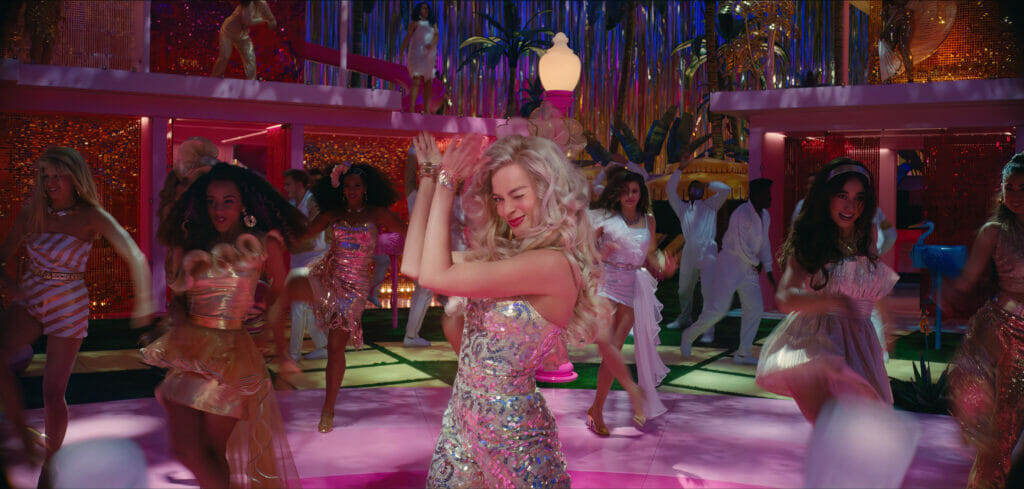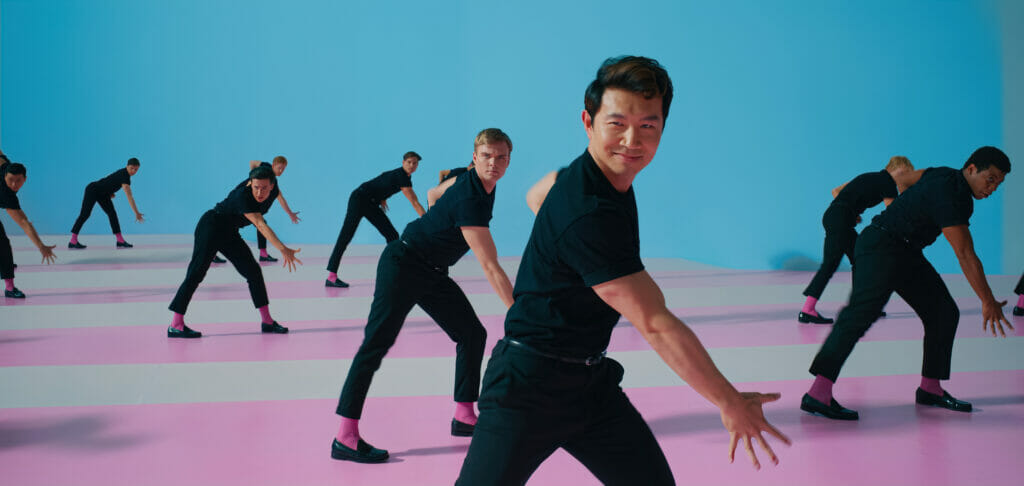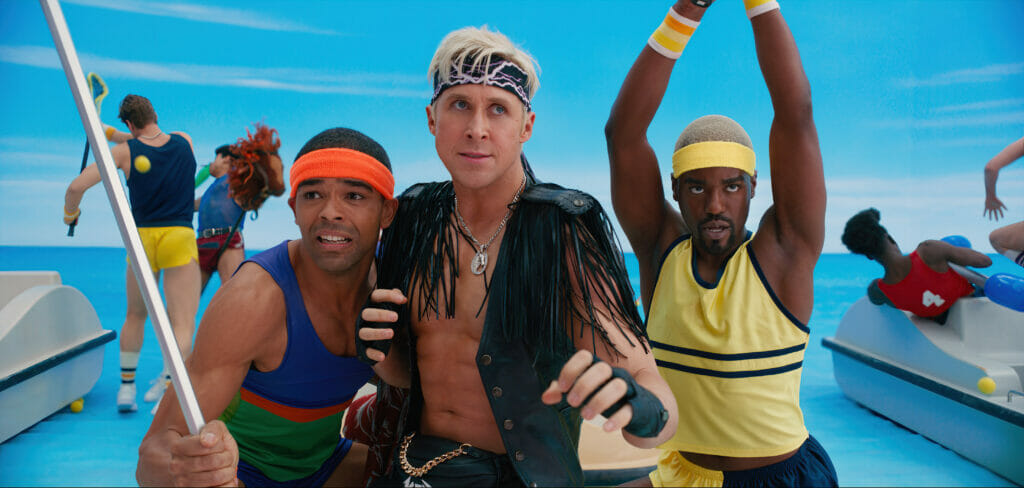Read also:
How to Watch FX Live Without CableHow To Watch AMC Without CableHow to Watch ABC Without CableHow to Watch Paramount Network Without CableMargot Robbie fills the plastic heels of the iconic girls’ doll in Gerwig’s bubbly, socially-conscious comedy.
The news that director Greta Gerwig’s follow-up project to her celebrated adaptation of Little Women would be a movie about Barbie dolls was met with skepticism and even disappointment when first announced in mid-2019. What did it mean for the future of one of Hollywood’s few high-profile female directors? Would she abandon her apparent passion for telling intimate stories about coming of age?
Happily, Gerwig’s Barbie, which she co-wrote with husband Noah Baumbach (Marriage Story, White Noise) picks up where Lady Bird and Little Women left off, using the famous fashion doll as a jumping-off point for exploring the unique challenges and joys of being a woman, or even a human.
Margot Robbie (I, Tonya) plays Stereotypical Barbie, a happy blonde doll who spends every day partying with her fellow Barbies and their Kens in Barbieland. None of the Barbies experience self-doubt; in fact, they’re convinced that their mere existence has solved all the gender-based problems women and girls experience in the real world. But Stereotypical Barbie starts thinking about death, and once she starts, she can’t stop. When she begins to malfunction, going flat-footed and tumbling off the roof of her Dreamhouse, she visits the scribbled-on Weird Barbie (Kate McKinnon) to try to figure out a way to return to normal. Weird Barbie, who hilariously is “always in the splits” after being played with “too hard,” sends our blonde heroine on a quest to the real world to find the girl whose emotions are tearing through into Barbie’s dimension.
Stereotypical Barbie’s hapless, co-dependent boyfriend Ken (Ryan Gosling, in his funniest role since The Nice Guys) tags along and ends up accidentally discovering the patriarchy, which he defines as “a world run by men and horses.” Instead of fixing Stereotypical Barbie’s problems, their jaunt in reality leaves Barbie and Ken more unsure than ever about where they belong.

Mercifully, the movie wastes almost no time explaining the mechanics of Barbieland versus the human world, choosing to instead devote that time to more hilarious jokes. With many recent blockbusters getting bogged down in so-called “lore” (yes, I’m looking at you, Marvel Cinematic Universe), it’s truly refreshing to have the characters flat-out refuse to apply logic to what is better understood as magic. “Is Barbieland another dimension, or a place we can actually visit?” wonders Mattel underling Aaron Dinkins (Sex Education’s Connor Swindells). “Yes,” the Mattel executives respond, in unison.
Barbie also mostly eschews the bone-dry “well, that happened” self-effacing humor that’s defined modern franchises. The Barbies and Kens are too earnest to be sarcastic, bouncing off each other without an ounce of self-awareness. The cast is incredibly game, never delivering their lines with a metaphorical wink that would undercut the dolls’ complete belief in themselves. Remarkably, the first sequence of the movie actually recalls the feeling of playing with Barbie dolls as a kid, as Barbies effortlessly transition from being Pulitzer Prize-winning authors to ER doctors thanks to changes in accessories.
Barbie’s visit to the real world, where she’s shocked to discover that drinks contain actual liquid and construction sites aren’t run by groups of capable women, recalls the comedic style of other beloved fish-out-of-water movies like 13 Going on 30 and Elf. But of course, this doll is no dummy. When Sasha, the cynical middle schooler Barbie believes she’s supposed to be helping (Ariana Greenblatt, 65) calls her a fascist to her face, Barbie breaks down in tears. “I don’t even control the means of transportation!” she wails to herself. “Or commerce!”

The production design by Sarah Greenwood (who previously worked with director Joe Wright on Atonement and Anna Karenina) is worth the cost of admission: the Dream Houses are gorgeous, fantastical works of architecture, replete with waterslides and refrigerators stocked with printed-on food. They stand open like dollhouses on a cul de sac that plays on the planned communities of stories like The Stepford Wives and Don’t Worry Darling, emphasizing the film’s themes of how oppressive and difficult it can be to be a woman in the public eye.
At first, Stereotypical Barbie enjoys waking up and immediately looking into her friend’s open-plan Dream House to wave at her. As her mental state grows darker, the Barbies’ community starts to feel like a panopticon: Rear Window in shades of pink. The sets and costumes are built on a bedrock of Barbie history and archives, with plenty of fun Easter eggs for Barbie fans that won’t feel too alienating to newcomers. Costume designer Jacqueline Durran (Little Women) does an impeccable job of incorporating sixty-four years of changing Barbie fashions into the film’s look. Even when the wilder looks recall how a confused child might dress their toy— Ken rocks two pairs of sunglasses and a mink coat over a fringed leather vest— everything fits seamlessly into the overall Barbie aesthetic.
Robbie (who’s also a producer) plays Barbie with such winsome aplomb — her earnestness shines through in every expression, in particular the warm, open smile she bestows on everyone she meets. The way Robbie plays Barbie’s fascination with and connection to older women is especially moving and lovely. She’s also not afraid of the physical comedy required of the role; at first, Stereotypical Barbie moves with the grace and confidence of an Old Hollywood star, completely detached from how real humans move. As her self-confidence erodes, she devolves into a petulant toddler, wrenching off her jacket clumsily and collapsing face-down on the floor. The film smash-cuts to a fake commercial for Depression Barbie, right on cue.

Gosling gives an equally full-bodied performance as Ken, flinging himself around in a style that recalls Paul Rudd’s infamous turn in the cult classic Wet Hot American Summer. Gosling’s Ken seems perpetually on the verge of bursting into tears, even as he tries to cling to his idea of masculinity. His voice warbles and breaks with emotion as he runs it up and down the scale, from high-pitched singing to attempts at low and sultry tones of seduction.
But the real standout is America Ferrera as Sasha’s mother, Gloria, an executive assistant at Mattel who feels her life’s purpose slipping away as her daughter grows up and middle age encroaches. As the film’s representative of the human experience of womanhood — the conflicting expectations society, and consequently Barbie, place on her — she delivers a powerful monologue in the film’s third act that pulls all of those contradictions together. It feels directly in conversation with Jo’s famous “Women, they have minds, and they have souls, as well as just hearts” monologue from Gerwig’s version of Little Women.
It would be very easy to steer into the gender role critiques and accidentally make Barbie: the Movie a didactic, obligatory affair. But Gerwig’s Barbie is fast-paced and funny, which makes it all go down smoothly. While a couple of jokes felt cloyingly over-meta, Gerwig’s genuine passion for women, girls, and their interests shines through the rest. Beyond the fabulous production design and costumes, the movie delivers a level of spectacle we’ve come to expect from summer blockbusters, not with CGI battles, but with entertaining set pieces and elaborate song-and-dance numbers.
Despite its relentless promotional campaign, the movie still has some clever tricks and surprises up its sparkly, pink sleeves that are best left unspoiled. Gerwig infuses Barbie with the heart and soul that more big tent movies so desperately need, without shedding her own eclectic sense of humor. In other words? She’s everything.
Barbie sparkles in theaters July 21st.